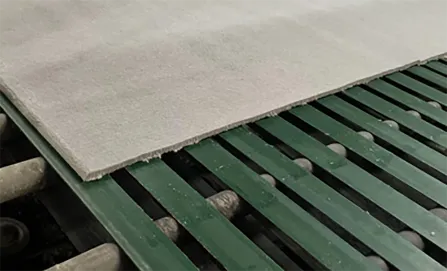Dec . 24, 2024 13:25 Back to list
Ceiling Solutions Using Mineral Fiber for Enhanced Acoustic Performance and Aesthetic Appeal
Understanding Ceiling Mineral Fiber Properties, Benefits, and Applications
Ceiling mineral fiber is an increasingly popular material used in the construction and renovation of residential, commercial, and industrial spaces. Its unique properties make it an ideal choice for acoustic control, thermal insulation, and fire resistance, significantly enhancing the comfort and safety of interior environments. In this article, we will delve into the characteristics, advantages, and applications of ceiling mineral fiber.
Characteristics of Ceiling Mineral Fiber
Ceiling mineral fiber panels are primarily composed of natural and synthetic minerals, such as fiberglass, gypsum, and aggregates. These materials are engineered to create lightweight panels that possess excellent sound absorption, thermal insulation, and fire-retardant properties.
The structure of mineral fiber panels is generally porous, which allows them to reduce noise levels significantly. They are designed to trap sound waves, preventing echoes and disturbances within a space, making them particularly advantageous in environments like schools, offices, and auditoriums where noise control is paramount.
In terms of thermal performance, ceiling mineral fiber acts as an effective insulator. It helps maintain a stable indoor temperature by minimizing heat transfer, which can lead to energy savings and improved HVAC efficiency. This property makes it an attractive choice for energy-conscious builders and homeowners.
Benefits of Using Ceiling Mineral Fiber
1. Acoustic Control One of the primary benefits of mineral fiber ceiling tiles is their ability to absorb sound. This characteristic not only enhances speech intelligibility in crowded environments but also contributes to a more pleasant and productive atmosphere.
2. Fire Resistance Mineral fiber is inherently fire-resistant, making it an essential choice for safety-conscious construction. Panels made from this material can help slow down the spread of flames, providing additional time for evacuation in the event of a fire.
ceiling mineral fiber

3. Moisture Resistance Many mineral fiber panels are designed to resist moisture, reducing the risk of mold and mildew growth. This is particularly beneficial in areas such as bathrooms, kitchens, and basements where humidity levels can fluctuate.
4. Aesthetic Versatility Ceiling mineral fiber panels are available in a wide variety of textures, colors, and designs, making them suitable for various architectural styles. They can easily blend into different decor schemes, enhancing the overall aesthetic of a space.
5. Sustainability Many manufacturers produce mineral fiber panels using recycled materials and sustainable practices. This aligns with the increasing demand for green building materials and can contribute to obtaining LEED (Leadership in Energy and Environmental Design) credits in construction projects.
Applications of Ceiling Mineral Fiber
The versatility of ceiling mineral fiber allows it to be used in a wide range of applications. In commercial real estate, these panels are often employed in offices, schools, hospitals, and retail environments where both aesthetics and functionality are critical. The ability to customize the Ceiling Mineral Fiber Tiles means they can meet specific acoustic and insulation requirements for each unique setting.
In residential construction and remodeling, homeowners are increasingly opting for ceiling mineral fiber tiles to enhance living spaces. They can be used in basements, living rooms, and home theaters to improve sound quality and comfort. Moreover, in commercial kitchens and restaurants, these panels help manage noise levels while providing essential fire protection.
Conclusion
Ceiling mineral fiber is a remarkable material that offers numerous benefits for acoustic performance, fire safety, and thermal insulation, making it an excellent choice for various applications. Its aesthetic flexibility and potential for sustainability further enhance its appeal in modern construction and renovation projects. As more builders and homeowners seek materials that combine functionality with design, ceiling mineral fiber is set to remain a popular choice in the construction industry.
-
Durable Ceiling T Grid Systems | Easy InstallationNewsAug.29,2025
-
PVC Gypsum Ceiling: Durable, Laminated Tiles for Modern SpacesNewsAug.28,2025
-
Pvc Gypsum Ceiling Is DurableNewsAug.21,2025
-
Mineral Fiber Board Is DurableNewsAug.21,2025
-
Ceiling Tile Clip Reusable DesignNewsAug.21,2025
-
Ceiling T Grid Modular DesignNewsAug.21,2025







